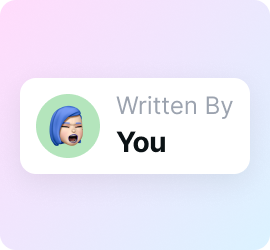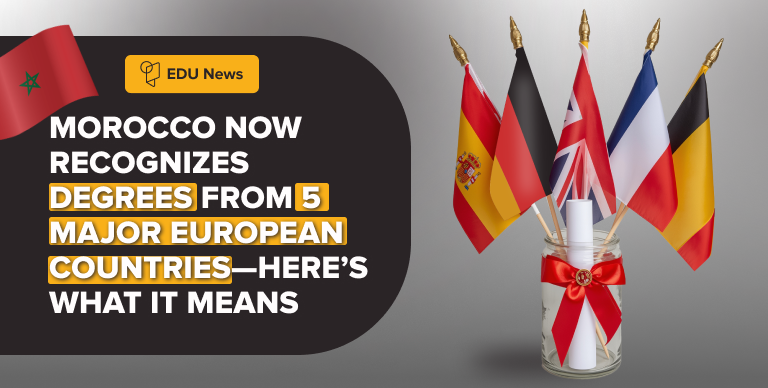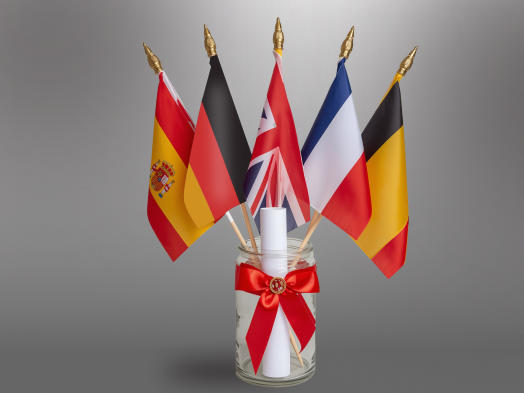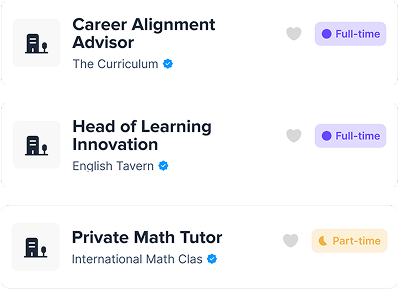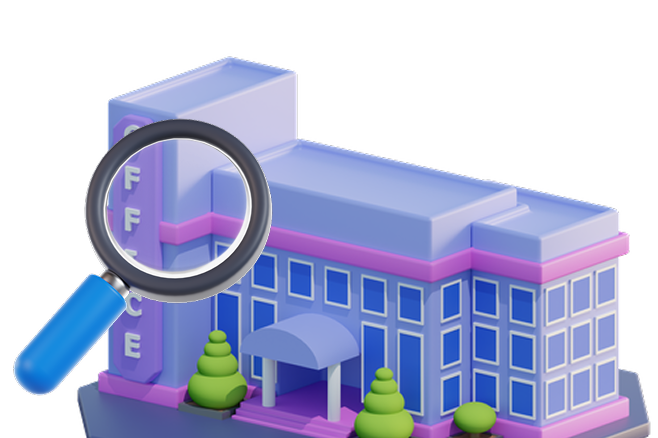A Big Win for Internationally Educated Professionals
Morocco has officially announced that select degrees from five major European countries will now be recognized as equivalent to Moroccan national diplomas. This includes bachelor’s, master’s, doctoral, and engineering degrees.
It’s a major step for cross-border education mobility and a clear signal that Morocco is opening doors to broader international recognition.
Who’s Included?
According to Official Gazette No. 7422 (July 17, 2025), Morocco will now recognize certain foreign diplomas from public universities in:
- 🇪🇸 Spain
- 🇫🇷 France
- 🇧🇪 Belgium
- 🇩🇪 Germany
- 🇬🇧 United Kingdom
Covered degrees include:
- Bachelor’s
- Master’s
- Doctorates
- Engineering
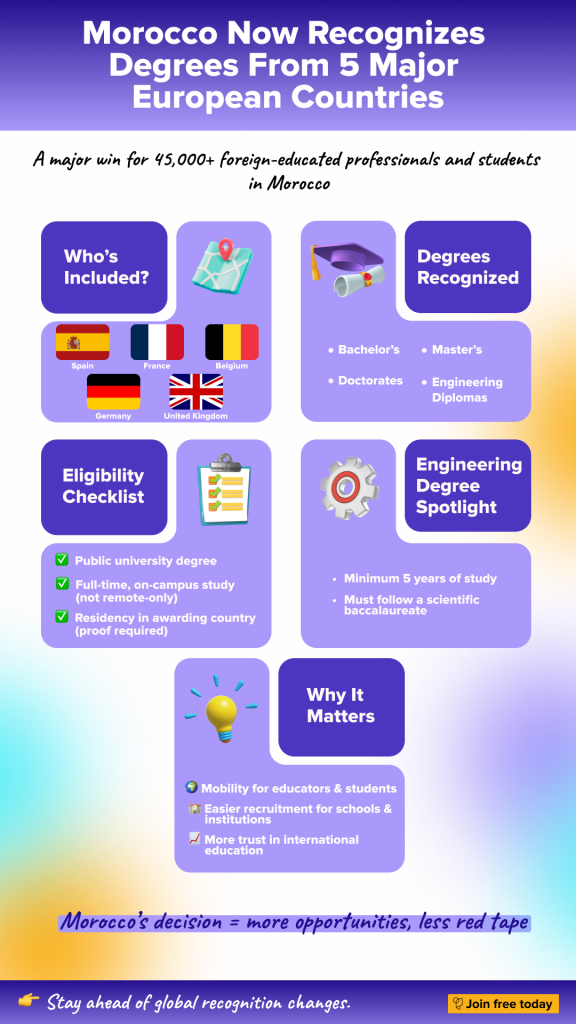
What Makes a Degree Eligible?
Not all degrees are covered. To qualify for equivalency, applicants must meet specific criteria:
- Issued by a public university in one of the five countries
- Completed through full-time, in-person study (not remote-only)
- Proof of residency in the awarding country during study
Spotlight on Engineering Degrees
Engineering diplomas receive special consideration. They will be recognized as Morocco’s “Diplôme d’ingénieur d’État” only if:
- The program lasted at least five years
- It followed a scientific baccalaureate
Where to Verify Your Degree
Applicants are advised to check:
- The Official Gazette (Bulletin officiel No. 7422)
- The Ministry of Higher Education Portal: enssup.gov.ma
Each case will still be reviewed individually to confirm compliance.
What This Means for Educators, Schools, and Students
This decision goes beyond bureaucracy—it has real-world impact:
- Educators: Greater access to roles in Morocco with foreign-earned qualifications
- Schools and recruiters: Easier, more reliable degree verification
- Students: More confidence when studying abroad, knowing degrees hold value at home
It also signals Morocco’s broader push for international alignment, with potential for recognition agreements to expand further.
EDU Passport’s Take
This is a clear step toward transparency, mobility, and trust in global education.
When qualifications travel, opportunities grow. Teachers can build global careers. Students can pursue study paths with confidence. Institutions can hire across borders.
EDU Passport helps educators and schools navigate these changes, making recognition and showcasing of qualifications easier than ever.
For International Students & Institutions
Know someone navigating recognition? Share this update with your network.
If you’re a foreign-educated educator:
- Check if your degree meets Morocco’s new requirements
- Showcase your credentials through EDU Passport
- Connect with schools and recruiters worldwide



